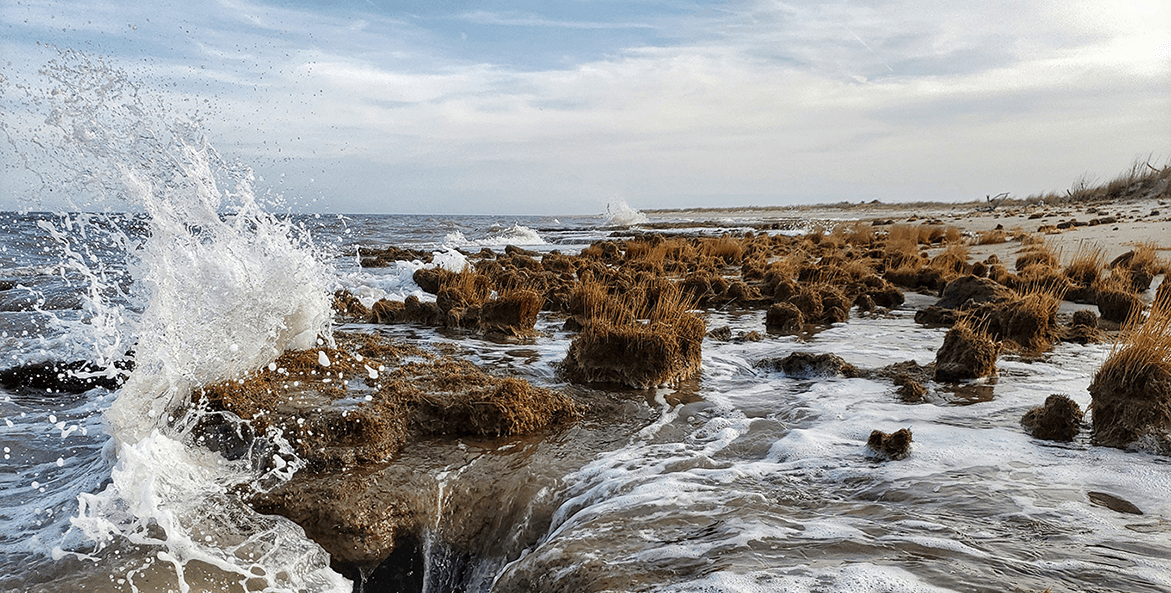As a long-standing steward of the Bay watershed, CBF works to elevate good practices for healing our waterways while being vigilant in opposing projects, proposals, and regulatory rollbacks that threaten our waters and communities. Achieving a healthy, resilient watershed for future generations depends on the actions we take now. To encourage major acceleration in Bay restoration, CBF is advocating for critical programs and funding throughout the watershed as well as defending against attempts to undo decades of restoration efforts.
With clean water advocates by our side, here’s what we’re fighting for in 2025 and how we will do it:
1. Creating a Shared “Bay Legacy”
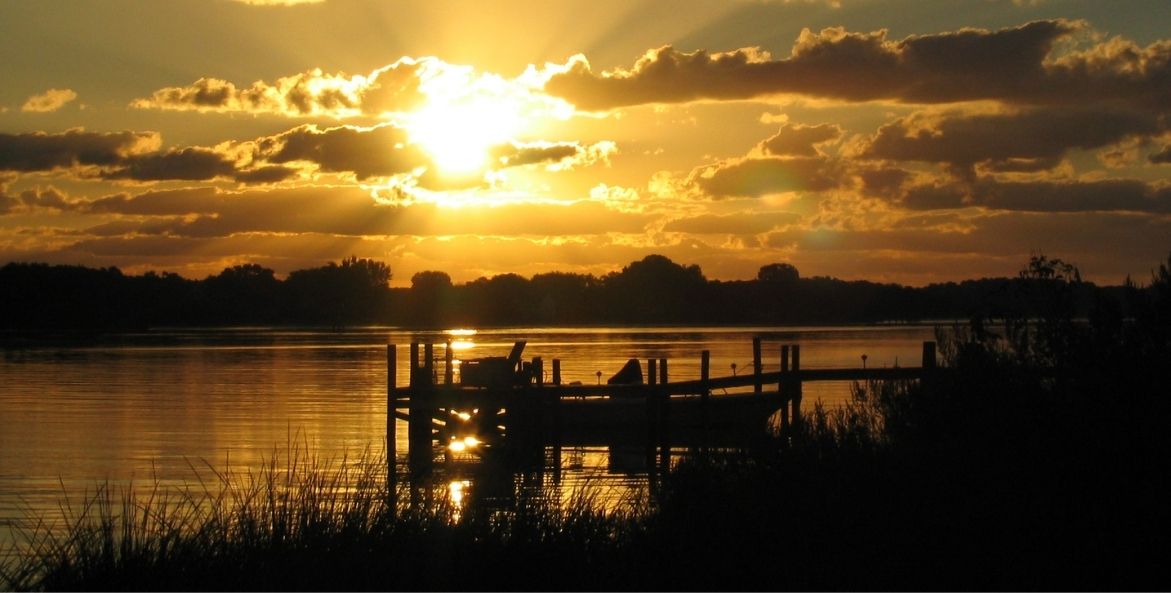
Dean Thomas Harrison
At last month’s Chesapeake Bay Program Executive Council meeting, the Bay governors announced their plans to chart a course for the next phase of clean water restoration in our region. This includes updating the multi-state and federal agreement to clean up the Chesapeake Bay and introducing legislation to address several key Bay restoration priorities during 2025 legislative sessions. These items address some of the most pressing needs and recommendations identified in the May 2023 Comprehensive Evaluation of System Response (CESR) report.
While states have made notable progress on work to reduce pollution, particularly from wastewater treatment plants, efforts are lagging to curb polluted runoff from developed areas and farms. Despite missing the 2025 deadline, states are still required to meet the pollution-reduction goals they committed to.
Governor Moore announced plans for a package of new bills this upcoming state legislative session that would advance Bay restoration in Maryland. Governor Youngkin issued a directive that outlined proposed Virginia initiatives for the next phase of Chesapeake Bay restoration. Governor Shapiro announced $24 million in investments to clean up Pennsylvania rivers and streams that flow to the Chesapeake Bay.
By the end of this year, we expect to see an updated Chesapeake Bay agreement that follows the latest science with equal priority toward achieving water quality and living resource goals. Milestones that measure progress and provide accountability should also be updated to include a combination of scientific modeling and real-world monitoring. Demonstrating visible success in people’s local rivers and streams is critical to the longer-term goal of reduced pollution and improved oxygen in the Bay’s deepest waters. CBF will be monitoring this process and advocating for the Bay and all those who call it home every step of the way.
2. Fighting for Investments in Clean Water
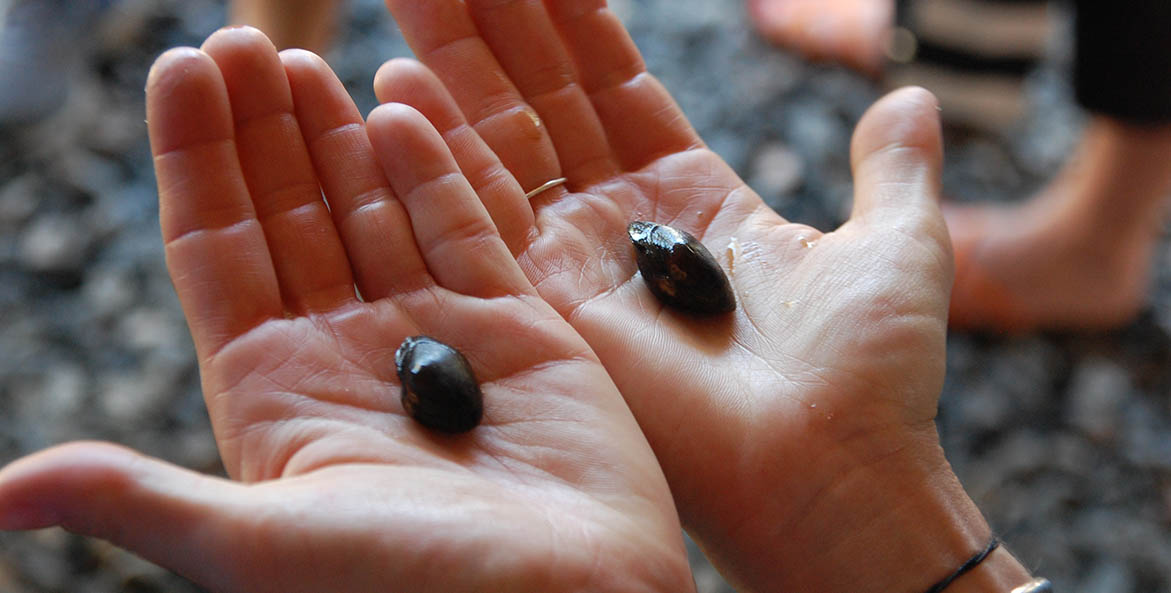
Rainbow mussels at the Harrison Lake Hatchery in Charles City, VA.
Kenny Fletcher/CBF Staff
Maryland is facing a potential Fiscal Year 2026 deficit of nearly $3 billion dollars, a number that is expected to grow in the years ahead. Historically, in lean budget times the programs that support clean water have been popular places for governors and legislators to borrow from to bridge temporary shortfalls. This session, CBF will be working to defend our Bay-focused programs, educate decisionmakers on opportunities to stretch our conservation dollars further, and telling the stories about what Maryland’s investment means for the communities and industries that rely on a healthy Chesapeake Bay watershed.
In Virginia, CBF will be advocating for full funding of programs that will help the state achieve clean water goals. In addition to these key investments, CBF will be urging legislators to support the Commonwealth’s fisheries by funding mussel and oyster restoration efforts, expanding and improving the Harrison Lake mussel hatchery, and funding critical science and research on Atlantic menhaden and oyster populations. CBF will also advocate for significant investments in environmental education and literacy across Virginia.
In Pennsylvania, CBF looks forward to working with legislators to maintain monumental levels of commitment to conservation and allow the Commonwealth to stay on track toward meeting its clean water commitments. This includes sustaining funding for the Agricultural Conservation Assistance Program (ACAP), a critical program that helps the Commonwealth's more than 50,000 family farmers design and implement conservation practices. CBF will be working to ensure the 2025-26 state budget maintains investments in agriculture and clean water programs as well as increase the resource agencies budgets.
Funding at the federal level as well is critical for 2025 and the next few years. During the last Trump administration, the president tried to eliminate or significantly reduce the funding for key programs that are critical to the health of the Bay, including the Environmental Protection Agency’s Chesapeake Bay Program, the Chesapeake Watershed Investments for Landscape Defense (WILD) grant program, and many others. CBF and our partners leaned heavily on members of Congress to ensure that these programs continued to receive adequate funding. We’re grateful for the bi-partisan support for the Bay in Congress and their steadfast commitment to clean water. We fully expect these threats again from the second Trump administration and will continue to call on Congress to protect funding for programs that play a crucial role in Bay restoration.
3. Leading Through Science to Combat Climate Change and Stand Up for Fisheries
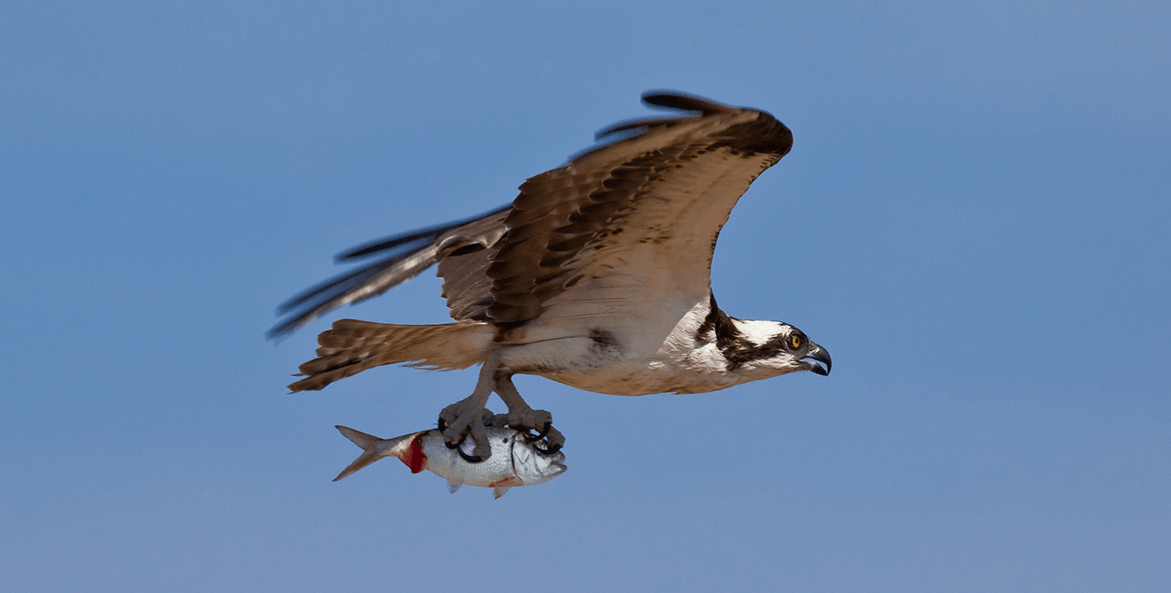
Osprey depend on menhaden as a key element of their diet.
iStock
CBF has been a leader in ensuring that Bay restoration efforts follow the best available science. We’ll continue to play that critical role across the watershed, at all levels this year.
We live on the front lines of the climate crisis. Unchecked climate change could wipe out and ultimately overtake the progress we and other organizations, as well as government agencies, have made cleaning up the Bay. Through advocacy and restoration, CBF is putting practices on the ground that reduce pollution to the Bay and help communities mitigate and adapt to climate change. We will also continue the fight to enact and protect legislation and regulations that address the continuously growing threat of climate change.
CBF also seeks to apply the lessons learned from history and the latest science to restore and maintain the Bay's valuable fisheries. A healthy Bay with abundant fish and wildlife populations along with plenty of fishing and other recreational opportunities is only possible when there are sufficient forage fish, like Atlantic menhaden. But for far too long, the critical science needed to make informed decisions about the Chesapeake’s menhaden has been delayed due to industry interference. CBF and our partners will continue to demand the science needed in managing this critical fish—and you can join us by signing our pledge!
Additionally, signs increasingly indicate that something is not quite right for striped bass, one of the most revered fish in the Chesapeake Bay and along the Atlantic Coast. The population is struggling due to a lack of menhaden to eat, low oxygen levels in the Bay, climate change, and more. There will be no future for striped bass, or the charter captains and watermen who rely on them, if we stick with the status quo. Ultimately, fishery managers are operating in a new ecological reality that they must take into account if they want to ensure the long-term wellbeing of both striped bass and the fishery. CBF will be monitoring the latest reports and advocating for this critical species at every turn.
4. Ensuring Clean Water, Clean Air, and a Safe Environment for All
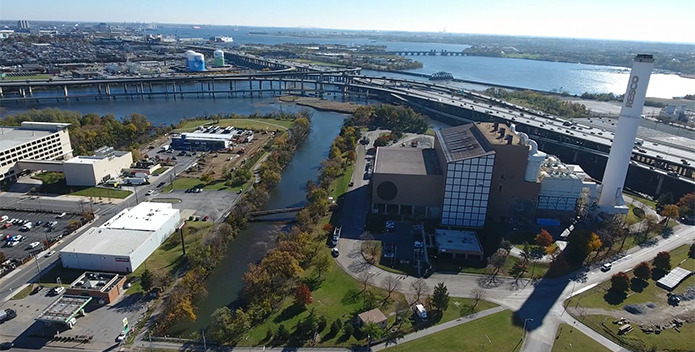
Air pollution from Baltimore's Wheelabrator trash incinerator causes $55 million annually in health problems.
Rob Beach/CBF Staff
There are more than 18 million people who live in the Chesapeake Bay watershed, who don’t all look the same, have the same background, or speak the same language. But we are connected by the right—not the privilege—to clean water. Unfortunately, not everyone experiences this right equally.
CBF is committed to addressing this inequality. This includes:
- Defending policy and regulatory reforms put in place by previous administrations to help address environmental injustices, improve the health of our environment, and increase diversity, equity and inclusion within federal agencies;
- Monitoring compliance with air and water permits;
- Supporting legislation that gets communities the funding they need to do studies on the impacts of pollution, stormwater flooding, and more to inform improvements to state and local infrastructure; and
- Working closely with communities throughout the watershed to identify opportunities to address and prevent environmental injustices through litigation.
If we are going to reach a future where the Bay region is truly a sustainable ecosystem, it has to include everyone.
5. Securing a Bay-Friendly Farm Bill
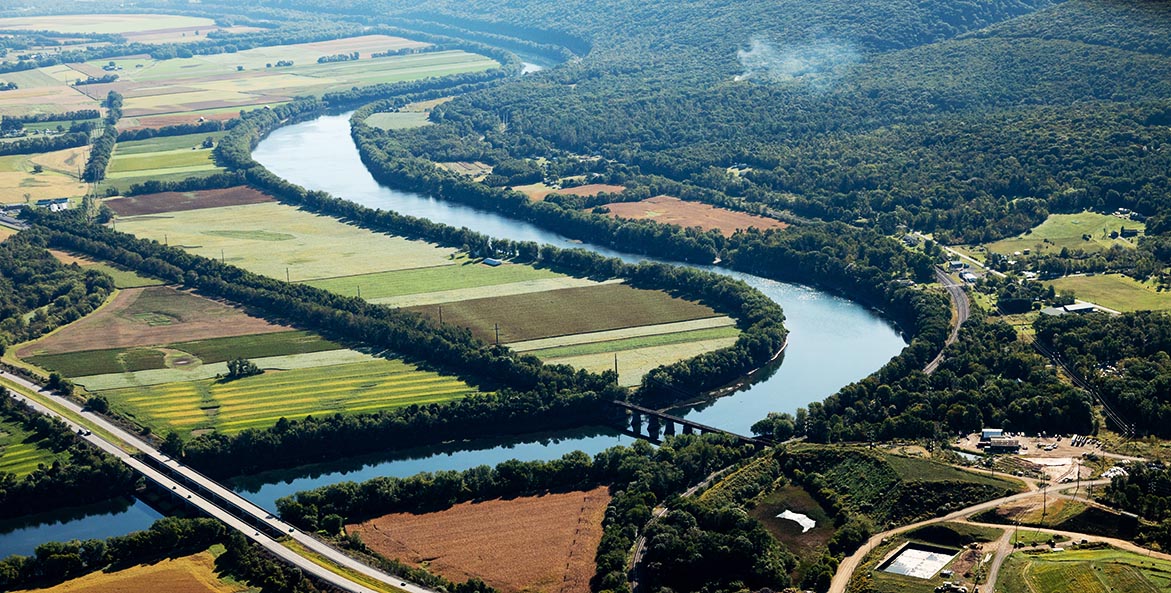
Forest buffers separate farm fields from the West Branch Susquehanna River, providing a highly effective filter that reduces the amount of nutrient and sediment pollution that runs into the Commonwealth's waters.
Will Parson/Chesapeake Bay Program
Every five years or so Congress passes the federal Farm Bill, a critical piece of legislation that has far-reaching impacts on farm communities and the way food is grown. With nutrient runoff from farms as the largest source of pollution in the Chesapeake Bay, the Farm Bill is the biggest opportunity we have to get federal funds and resources to farmers in our region to help reduce pollution and bolster efforts to restore the Bay.
The most recent Farm Bill was passed in 2018 and expired on September 30, 2023. Its expiration threatens critical conservation programs that support our farmers and clean our waters. While Congress has included two one-year extensions of the 2018 Farm Bill in their short-term budget deals in 2023 and 2024, avoiding cuts to critical conservation programs, a new Farm Bill has still not successfully passed. Congress will continue to deliberate and work to pass a new Farm Bill, and CBF will be advocating every step of the way. We will need you with us—please sign our pledge to stand with the watershed’s farmers!
In 2022, the Inflation Reduction Act provided $20 billion over five years to the Department of Agriculture to help farmers pay for and put in place conservation practices that improve water quality and soil health. These dollars are at risk under a second Trump administration. The Farm Bill also provides a unique opportunity to help increase financial and technical resources for farmers who enroll in conservation programs. CBF will continue working to protect the IRA dollars, advocate for additional funds and technical assistance, as well as necessary policy changes, to help farmers utilize conservation practices and work closely with the department on implementing its conservation programs.
And So Much More
While these are some of the major clean water issues we'll be advocating for in 2025, they certainly do not encompass everything. Explore our website to learn more about these issues and our other advocacy priorities in Maryland, Virginia, Pennsylvania, and the 119th United States Congress.
Advocating for and defending clean water requires an “all hands on deck” response, and there are many ways for you to learn more or get involved. Sign up for our Action Network and check out our advocacy tools and resources for more information on how you can advocate for clean water every day.

Issues in this Post
Advocacy Chesapeake Clean Water Blueprint Climate Change Environmental Justice Fisheries Litigation

